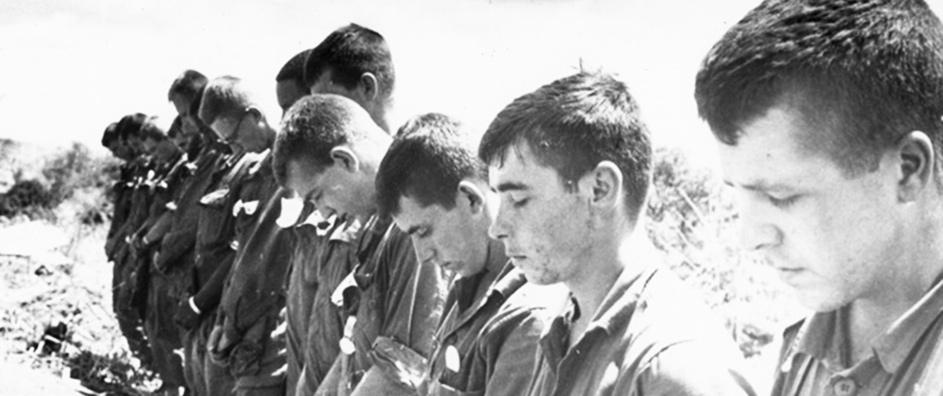In an age characterized by intellectual skepticism and empirical inquiry, the practice of prayer often invites scrutiny. Many individuals question its efficacy and relevance, especially when confronted with tangible complexities of existence. This examination seeks to offer a nuanced perspective on the Bahá’í teachings related to prayer and encourages readers to consider the concept of “combat” as a metaphorical avenue toward deepening one’s understanding of spiritual practice.
At its essence, Bahá’í teachings underscore the significance of prayer as a vital link between the human soul and the divine. It transcends mere supplication; rather, it embodies a holistic practice that cultivates personal growth and fosters community ties. However, the discomfort and skepticism surrounding prayer can evoke a sense of alienation. This leads us to explore the notion of “combat” as a counteractive tool to navigate through skepticism and find solace in prayer.
1. **Understanding the Role of Prayer in Bahá’í Faith**: Within the Bahá’í framework, prayer serves multifaceted purposes. It acts as an instrument for communion with God, a means of reflection, and a catalyst for personal transformation. Bahá’ís are encouraged to engage in daily prayers, reflecting on their intrinsic meaning and divine connection. This practice defies the traditional views on prayer, elevating it from rote recitation to a soulful dialogue with the Creator.
2. **The Nature of Skepticism**: Skepticism is not inherently negative; it can be an avenue for deeper inquiry. In the Bahá’í context, this skepticism can be directed towards one’s own understanding of spiritual practices. Acknowledging doubt is the first step in transcending it. Engaging with questions about the nature and purpose of prayer leads to a more profound realization of its importance, where the notion of combat becomes pertinent.
3. **Combatting Doubt: A Metaphorical Framework**: The idea of “combat” invokes imagery that can be both daunting and invigorating. In Bahá’í teachings, combat is not a physical confrontation; rather, it symbolizes an internal struggle against ignorance, apathy, and despair. By harnessing the metaphor of combat, individuals can conceptualize their spiritual journey as a dynamic confrontation with the forces that seek to undermine their faith.
4. **Intellectual Engagement as Combat**: One of the most effective weapons in this metaphorical combat is intellectual engagement. A thorough exploration of diverse theological perspectives can foster a robust understanding of prayer’s significance. The Bahá’í scriptures encourage believers to investigate truth from multiple angles. This scholarly exploration not only addresses skepticism but strengthens one’s faith by revealing layers of meaning within prayer.
5. **The Transformational Power of Action**: While prayer is primarily an introspective practice, it is essential to complement it with tangible actions. Combat in the Bahá’í context involves active participation in community service, advocacy for social justice, and the promotion of unity among diverse peoples. Engaging in these actions fortifies one’s prayer life, illustrating that prayer is most potent when it motivates believers to effect positive change in the world.
6. **Reflection and Introspection**: Another key component of this combat against skepticism is self-reflection. Taking time to meditate on personal motivations for prayer and the far-reaching impacts it has can illuminate its significance. This reflective practice encourages individuals to explore their feelings about prayer, leading to an authentic reconciliation between skepticism and belief. Journaling can be an excellent tool for this introspection, allowing thoughts to crystallize into coherent insights.
7. **Community and Collective Prayer**: The Bahá’í community often assembles for collective prayer, creating an environment where individual skepticism can be transformed into collective faith. Sharing experiences and insights during communal prayers offers a powerful antidote to doubt. It fosters a sense of belonging and mutual support, allowing skeptics to witness the faith of others and reconsider their own hesitations.
8. **Navigating Through Spiritual Turmoil**: It is crucial to acknowledge that moments of spiritual turmoil are natural and often lead to profound transformation. Combatting feelings of disillusionment with prayer involves recognizing these experiences as opportunities for growth. The Bahá’í teachings assert that such trials often bring individuals closer to understanding their divine purpose and relationship with God.
9. **Integrating Prayer into Daily Life**: Finding ways to integrate prayer into daily routines can significantly alter one’s perspective. Short, intentional prayers during moments of reflection, such as before meals or upon waking, allow for a consistent connection to the divine. This habitual approach encourages a lifestyle that views prayer not merely as an isolated act but as a continual conversation with God.
10. **Embracing the Journey**: Ultimately, the journey of reconciling skepticism with faith is deeply personal. It is an ongoing process that requires patience and commitment. By framing this journey as a battle against doubt and an opportunity for growth, individuals can find solace in their spiritual practices. Acceptance of uncertainty as part of the path can lead to profound insights and deeper engagement with prayer.
In conclusion, the dialogue surrounding prayer within the Bahá’í teachings offers rich opportunities for exploration and combatting skepticism. By viewing prayer through the lens of personal and communal combat against ignorance, believers can find renewed meaning in their spiritual practices. Instead of shying away from skepticism, embracing it as a crucial part of one’s spiritual journey can lead to a transformative understanding of prayer and its indispensable role in the quest for truth.
